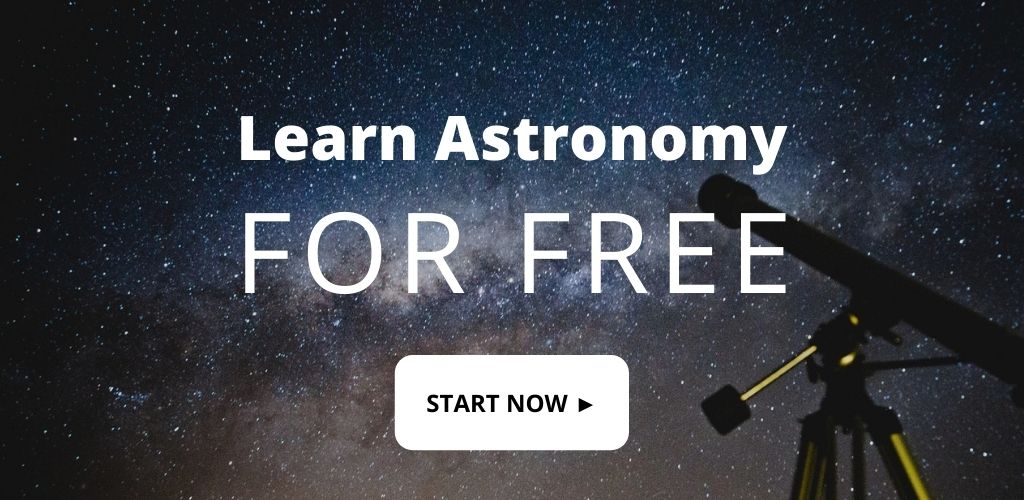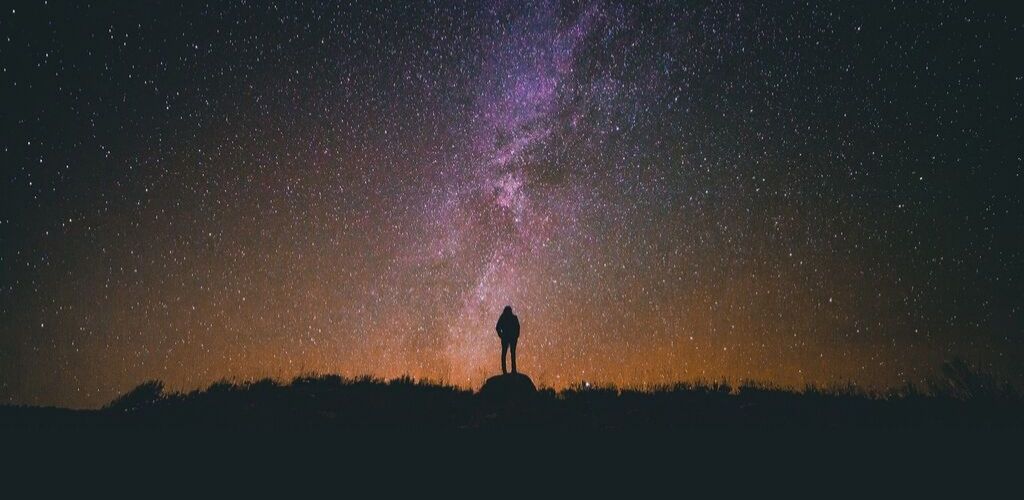
Recording the observations you make will help you learn about the night sky, but also keep track of your greatest memories. Here are some tips for keeping an astronomy log book.
What is an astronomy log book for?
If you’ve ever looked through a telescope or binoculars, you may already have a favorite object in the night sky that you like to find day by day. You remember this celestial object, the type of instrument that you used to observe it and you certainly remember the sensation that you experienced the first time you observed it in the sky, and certainly also the how cold you felt, the way you rubbed your hands to keep them warm while you were changing your telescope eyepiece.
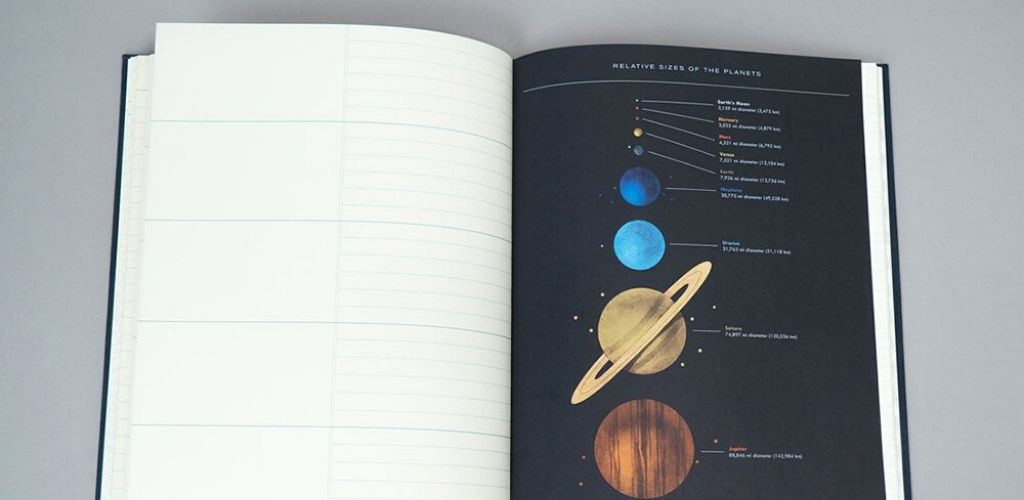
However, you only vaguely remember the time and day when you first observed it. It is for this kind of things that an astronomy log book can become your best friend, because it will allow you to note the smallest details that you will have trouble remembering.
Your stargazing sessions can become a real book of memories which, over time, will allow you to familiarize yourself with the wonders of the night sky. Keeping an astronomy log book will allow you not only to relive your experiences, but also to easily relocate celestial objects, to document anything unusual and even to predict what our universe has to offer us. Beyond its sentimental value, your astronomy log book will be useful if there are gaps in the data of professional astronomers or researchers.
So what information do you need to keep an astronomy log book? Choose a notebook, journal, or even software, and read the tips below.
Tips for keeping an astronomy log book
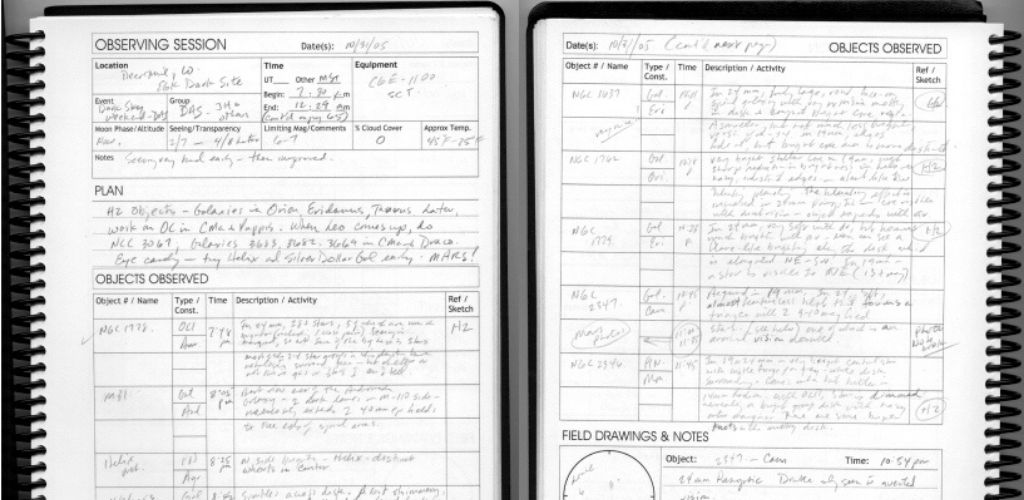
Actual astronomy log book – Source: astrologs.com
What day and what time?
It is important to note the time you start your stargazing session and the date. In addition, also register the observation spot, whether in front of or behind your garden, in a different country or a brand new observation spot. Whether with an astronomy club or alone, this should also be recorded in your astronomy log book. Do not forget to record the time when you stop the observation and where you store your equipment.
What weather is it?
Also detail the climatic conditions, the percentage of cloud cover and mention the presence or not of fog, mist, snow or high clouds. Also include details about visibility, the clarity of the night sky, the presence of summer haze, light pollution, or atmospheric turbulence that could affect the way you observe your target. Also note the unexpected little things to give your astronomy log book a personal touch. Add information on how you observe, if it is cold, but also information on the environment, such as nocturnal animals, human noise, meteors or any other atmospheric phenomenon.
What equipment do you use?
Whether you are looking through a telescope, binoculars or the naked eye, noting the equipment used for your observations will help you determine which one is suitable for a particular type of celestial object. This will ensure that you have the right equipment when you want to observe this type of object again. Note the type of telescope used, the focal ratio or length, the eyepiece used, the magnification, the apparent field of vision (FOV)… This will help you to review the performance of your equipment if you need an update. If you’re an astrophotographer, take notes on camera settings and exposure.
What am i looking at?
It sounds obvious, but your astronomy log book notes should be focused on the target celestial object. Include a drawing or image with its place in the sky, detailing the constellation and/or the right ascension and declination in order to relocate the object easily. Also note the brightness and structure of your target. If you are tracking a comet, it is important to note the areas of the sky you are scanning and the star clusters it crosses, as well as Messier objects and other celestial objects that you have not encountered before. In general, anyone who hunts for objects like supernovae, comets or variable stars has to accurately document the details of everything they do and see.
Use software to record your observations
If keeping an old-fashioned astronomy log book is not what you like, there are several software programs that will allow you not only to memorize your observations but also to have bonus functions, such as displaying celestial objects that are visible in your area, or even photos of galaxies, nebulae and other objects of the night sky, or even create star maps. For example, there are Deepsky Astronomy Software AstroPlanner or AstroByte software.
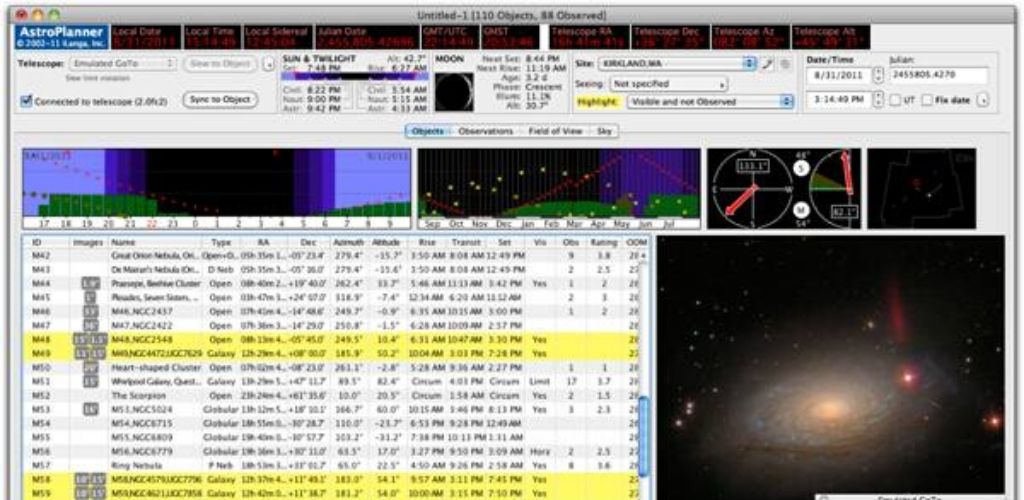
AstroPlanner log book software – Source: AstroPlanner.net
The advantage of these software is that they allow you to locate and map the night to observe before you even set foot outside. This means that your stargazing sessions will be more productive by allowing you to observe directly instead of spending time finding a celestial object. If you have a GoTo telescope, you can even let this kind of software direct your telescope to the celestial object of your choice while taking notes, photos, or sketching.
